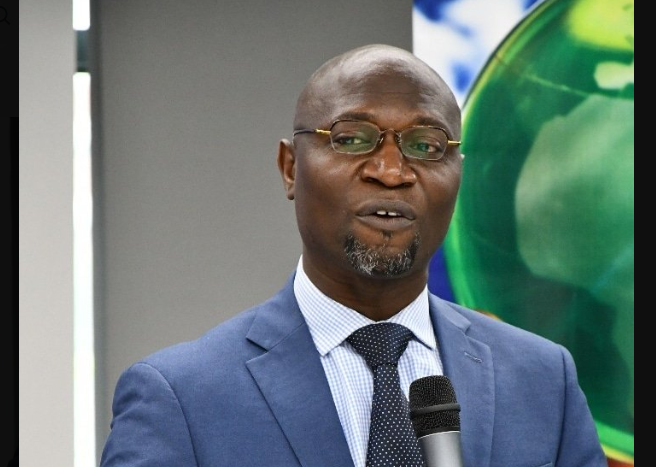Capital market experts agree that a resilient economy is rooted in its ability to transform domestic savings into investments that drive growth and development. Dr. Emomotimi Agama, the Director General of the Securities and Exchange Commission (SEC) and a leading capital market expert, emphasized this point during his speech at the Institute of Capital Market Registrars (ICMR) 13th Annual Conference, Investiture of Fellows, Induction of Associates, and Annual General Meeting held over the weekend. Dr. Agama argued that investing in Nigerian companies reduces the economy’s dependence on foreign capital and fosters self-sufficiency, which is particularly vital in times of global uncertainty.
He explained: “By directing our resources into local enterprises, we lay the foundation for a sustainable growth model. When Nigerians invest in their own businesses, we invest in the future of our nation. To strengthen our financial stability, it is essential to enhance the regulatory framework for venture capital and private equity (VC and PE) firms. This will improve their operational efficiency and attractiveness to investors. A vibrant VC and PE sector can stimulate growth in emerging industries and empower Nigeria’s entrepreneurial ecosystem, ultimately attracting both local and international investors and infusing critical capital into the Nigerian economy.”
Dr. Agama also stressed the importance of a strong, well-regulated capital market in driving wealth creation, ensuring economic stability, and creating opportunities for all Nigerians.
“A well-regulated market builds investor confidence, encouraging both local and international participation. When investors trust the integrity of our market, they are more likely to commit long-term capital, which stabilizes the economy and aligns with a shared vision of prosperity. Our rules and regulations ensure transparency and investor protection,” he said. “Therefore, the capital market is not only an engine of growth but also a cornerstone of stability—critical to Nigeria’s journey toward economic independence and resilience.”
Mr. Oluseyi Owoturo, President and Chairman of the Council at ICMR, highlighted the theme of this year’s conference—*“Enhancing Financial Stability in the Nigerian Economy: The Strategic Role of the Capital Market in Wealth Creation.”* He outlined the conference’s key objectives, including assessing the current economic landscape, identifying challenges to financial stability, and proposing actionable policy measures to enhance stability.
“The capital market is fundamentally about wealth creation. Take, for example, a company like Aradi, which sought capital in the market around 2001 and was recently listed on the Nigerian Exchange (NGX). This listing added over ₦3 trillion to the NGX’s capitalization,” Owoturo explained. “For our economy to grow, we must create pathways for companies looking to expand and raise capital. The most sustainable way to raise capital is through the capital market, as it is the only place where you can access patient capital.”
He continued, “For young entrepreneurs with innovative ideas or startups, it is not practical to go to a bank for a loan—because, once the loan is taken, you must start repaying. The capital needed for scaling a business often requires investors who understand that the returns will come over time. Every economy that has experienced growth has relied on its capital market to fund that growth. Even governments, such as Saudi Arabia, have leveraged the capital market. When they listed Saudi Aramco, only 5% of the company was offered on the stock market, but it added $2 trillion to their market capitalization. This illustrates the power of the capital market. After listing, Aramco’s annual dividend payout was $20 billion—more than Nigeria’s entire national budget for the year. This example shows just how much potential the capital market holds in stimulating economic stability and growth.”
Jude Chiemeka, Managing Director and CEO of the Nigerian Exchange Limited, spoke on the theme *“Restoring Confidence in the Capital Market: The Strategic Role of Registrars.”* Despite macroeconomic pressures, Chiemeka noted that the Nigerian capital market has shown remarkable resilience, reflected in the impressive 30.04% year-to-date increase in the NGX All-Share Index, with an equity market capitalization now standing at ₦58.92 trillion.
“This performance underscores the strength and growth potential of our capital market. Attractive yields in the bond market offer investors a secure, diversified alternative to equities. Additionally, the ongoing bank recapitalization exercise demonstrates the market’s role as a vital source of funding, enhancing the stability of the banking sector and signaling the market’s maturity,” Chiemeka said. “These successes highlight the importance of maintaining a high-trust environment in our market, emphasizing the need to protect and promote investor confidence.”
In summary, the discussions at the conference underscored the critical role the capital market plays in fostering economic growth, stability, and investor confidence—vital components of Nigeria’s ongoing pursuit of economic resilience and prosperity.

